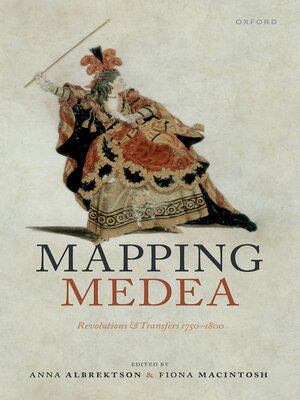
Sign up to save your library
With an OverDrive account, you can save your favorite libraries for at-a-glance information about availability. Find out more about OverDrive accounts.
Find this title in Libby, the library reading app by OverDrive.



Search for a digital library with this title
Title found at these libraries:
| Loading... |
The late-eighteenth century witnessed multiple Medeas take to the stages of Europe, in the Americas, and across the Russian empire. Performances took place in Moscow and S?o Paulo, in London and Lisbon, in Gotha, Stuttgart, and Venice. This lively collection of essays examines the various reasons why Medea, the ancient mother who killed her own children, attracted the attention of authors, audiences, actors, and rulers in Europe and its dominions during the pivotal period 1750 to 1800, and to what effects. As a migrant and iconoclast, Medea crosses a number of eighteenth-century borders: linguistic, cultural, national, temporal, spatial, aesthetic, ethical, and generic. Moreover, the fact that late-eighteenth-century playwrights, poets, composers, and choreographers all turned to one of the most problematic characters of Greco-Roman antiquity offers a unique opportunity to examine the remarkable flexibility of the reception process itself. Medea therefore functions as an intriguing case study, reflecting a wider context of cultural and political change within Europe and its colonies in the late-eighteenth century. By drawing together eighteenth-century specialists working across multiple languages and disciplines with the reception perspective of classical scholars, this volume brings much rare material from a range of archives across continental Europe to critical attention for the first time. Mapping Medea shows how the eighteenth century made Medea modern, and Medea helped to shape modern performance.






